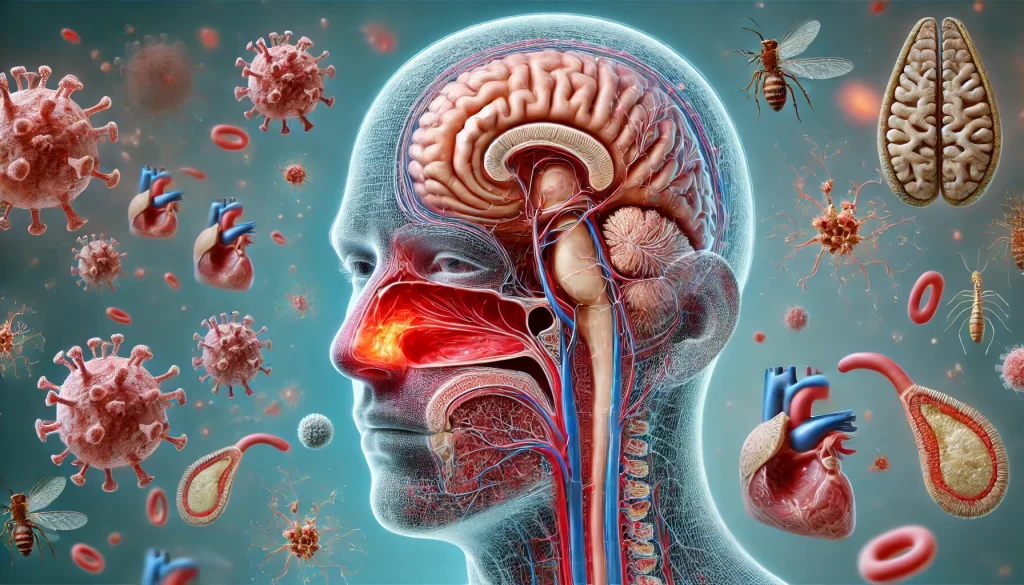Allergic Rhinitis
Allergic rhinitis, often referred to as hay fever, is an allergic response causing inflammation of the nasal airways. It occurs when the immune system overreacts to allergens in the air, leading to symptoms that can significantly impact quality of life.
Symptoms of Allergic Rhinitis
Common symptoms of allergic rhinitis include:
- Sneezing
- Runny or blocked nose
- Itchy nose
- Itchy, watery eyes
- Itchy throat or mouth
Symptoms can vary depending on whether the rhinitis is seasonal or perennial:
- Seasonal: Occurs particularly during pollen seasons.
- Perennial: Occurs year-round, and may be triggered by allergens such as dust mites, pet dander, or mold.
When to Seek Medical Advice
You should consult your healthcare provider if:
- Symptoms worsen or do not improve with over-the-counter treatments.
- You have symptoms that disrupt your sleep and daily activities.
- You experience complications, such as worsening asthma.
- You are unsure of what triggers your symptoms or suspect you may be allergic to something specific.
Diagnosing Allergic Rhinitis
Diagnosis is typically based on your medical history and symptoms. In cases where the trigger isn’t clear, your doctor may recommend:
- Skin prick tests: To identify specific allergens.
- Blood tests: To measure your immune system’s response to particular allergens.
Treatment Options
Treatment aims to reduce symptoms through avoidance of known allergens and medications:
- Antihistamines: To relieve sneezing, itchiness, and runny nose.
- Nasal corticosteroids: Sprays designed to reduce inflammation and treat severe symptoms.
- Decongestants: For short-term relief from nasal stuffiness.
- Allergy shots (immunotherapy): To desensitize the body to allergens.
Self-Care and Prevention
Managing allergic rhinitis often involves lifestyle adjustments alongside or instead of medications:
- Avoiding triggers: By staying indoors on high pollen days, using air purifiers, or keeping your environment clean to minimize exposure to dust mites.
- Regular nasal washing: Using saline solutions to clear allergens from the nasal passages.
- Maintaining clean air filters: In your home and car to reduce allergens.
Potential Complications
Untreated allergic rhinitis can lead to more serious health issues, including:
- Nasal polyps: Small growths in the nasal passages that can obstruct airflow.
- Sinusitis: Infection or inflammation of the sinus cavities.
- Ear problems: Such as middle ear infections.
Proper management of allergic rhinitis is crucial to prevent these complications and improve your quality of life. If over-the-counter medications aren’t effective, consult your healthcare provider for a tailored treatment plan.



 4.1 Attribution Theory and Person Perception: Why We Judge People the Way We Do (Even When We’re Totally Wrong) Let’s be honest. We’ve all
4.1 Attribution Theory and Person Perception: Why We Judge People the Way We Do (Even When We’re Totally Wrong) Let’s be honest. We’ve all



